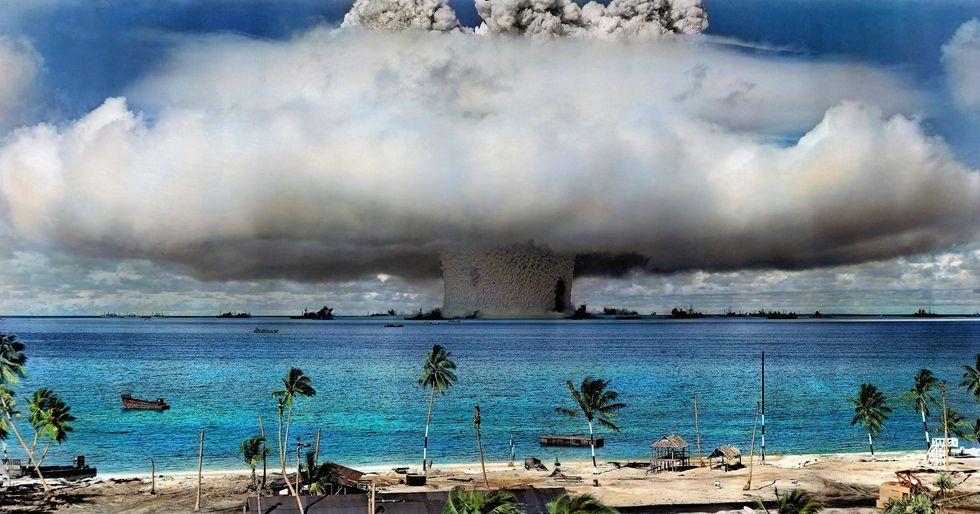This was a topic I can remember discussing in my environmental science class when it came to the environment as it applied to people's health. Regarding the topic of environment and health, there is definitely the concern for the Pacific Islanders, specifically the Marshall Islanders, who have to deal with the thermal expansion of the Pacific Ocean as well as a myriad of problems made manifest by climate change and outside interference.
Not only is there the worry of rising tides destroying the infrastructure, but the sewage is washed up, causing fever and dysentery; and the saltwater has infiltrated the salinized underground freshwater if it hasn't already been infiltrated by pesticides. If that is not a big enough problem, there are droughts that affect the interior of the islands. In a drought that occurred in 2013, 1/3 of all Marshallese were directly affected by it, with food and water shortages. These water shortages can only affect a country like the Marshall Islands where the overwhelming majority of the water that is collected comes from rainfall.
The more the planet gets warmer, the more intense the health issues are. Climate change would contribute not just heat stroke and tropical diseases, but also rising sea levels that destroy crops and the acidification of the water that kills fish. As such, food not grown on the Marshall Islands, such as rice, flour, and meat, have been imported and has contributed to an unhealthy lifestyle. Sixty-five percent of the Marshallese population is overweight or obese.
The biggest problem for the people of those islands is that the sea level may rise to 16 inches in the next 50 years. Adding to the constant water infiltration and the encroachment of floods, the Marshall Islands may not be inhabitable by the time that happens.
We as Westerners usually associate the post-apocalyptic world as being reserved within the context of what future MIGHT unfold. "Hunger Games" comes as an example. However, for a lot of people in this world, such as Native Americans when it comes to colonization, they are already living in a post-apocalyptic world, which really is not hard to think about. When your whole society is destabilized by some occurrence, whether it would be an invading army, land encroachment, or natural disasters, it can be pretty apocalyptic.
We also usually think about a post-apocalyptic world is one caused by a nuclear explosion. As it turned out, Marshallese people were first-hand witness to (and victims of) atomic bomb tests conducted by the US government from 1946-1958. It actually forced residents from the islands Rongelap and Utrik to evacuate. As a result, some of the people were exposed to the radiation, and as a result, 1.6% of all cancer diagnoses can be traced back to those nuclear tests.
Because of the long military history between the Marshall Islands and the United States, Marshallese residents can immigrate to the United States freely. The only issues in the foreseeable future is how to not only manage the climate and keep a strong tie with the island but also how to handle the tens of thousands of Pacific climate refugees who are sick in a wide variety of ways, if there are important people who are not cynical enough to use that exodus as political fodder for the 2020 elections.
To understand how much environmental destruction has an effect on the Pacific population is to have empathy. If anyone in the United States of America were to experience all that was described, their government would not hesitate to use all of their funding to research, combat, and quite possibly reverse climate change. Perhaps it will one day come to that point when they WILL suffer and regret having apathy. I am a powerless graduate student and the only course of action I can come up with is to spread the word.

















